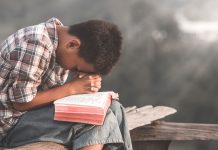Divorce among conservative Christians
In America, conservative Protestants seem to divorce at least as often as people of other religious orientations. The idea has become an opportunity for finger-pointing and accusations of hypocrisy, but this is only proof that the statistics are misinterpreted.
Argumentum Ad Hominem or how you attack yourself when attacking others
In an argumentative discussion each party involved must be able to express their point of view without constraints, discrimination or other interferences. This is, in fact, an important prerequisite for the effort to overcome differences of opinion. In practice however, often things are far from this ideal. Not only do interlocutors not respect each other’s right to free speech, but they also resort...
Does divorce make us happier than continuing in an unhappy marriage?
At the age of 27, for the first time in my life, I worried that time was passing too fast. For the next few years, the speed with which most of my friends were getting married was the next source of concern.
Boredom: How many different ways can you scratch that itch?
Related to the subject of boredom, Blaise Pascal wrote: “All of humanity's problems stem from man's inability to sit quietly in a room alone.”
The great failure of too high expectations
From the first positive pregnancy test, parents often build up expectations for their baby. And as the little one grows, so do the expectations—emotional, cognitive, moral and academic. While it's only natural that this should be the case, as children need to be set standards, parents' expectations can often turn out to be a double-edged sword.
Complaining too much? Here’s 5 things you can do instead
What do you do when things go wrong and everything around you seems to crumble? Do you keep your eyes forward and try to find a solution? Or do you fall into endless complaining?
Silence after the storm: Friendship, between quarrels and forgiveness
Eskimos don't have the word "quarrel" in their vocabulary. They live in a particularly harsh climate, so no one wants to risk getting pneumonia (or dying) just to prove that they are right.
Is there a cure? The painful limitations of the fight against paedophilia
Little over a decade ago, a highly acclaimed British documentary filmmaker, Louis Theroux, stepped into the midst of 500 paedophiles admitted to the psychiatric hospital in Coalinga, California, trying to find out if the complex treatment the convicts had to go through was really working.
Something to look forward to
“For the joy set before him he endured the cross” (Heb. 12: 2 NIV).
Facing rejection: a hard-fought battle
It has been more than ten years since my first job interview ended with the classic: You did a great job, but we have chosen someone else. Since this memorable moment, other closed doors have followed: employers rejecting my application, people not sharing my interests, groups giving me the feeling of not being accepted.
The illusion of connection
I sat slouched on the edge of my bed, blue light illuminating my face in the dark. It was the tenth time I’d checked my phone in the space of five minutes. I grimaced. Was something wrong with me?
Avoiding burnout syndrome: How to calibrate your work style
We often treat burnout syndrome as a diagnostic fad. In reality, overworking has become the norm, and its consequences are serious enough to urge us to identify the best strategies to prevent it.
Why it’s okay to let your children get bored from time to time
The refrain: “I’m booored…” is “the worst song on the parenting soundtrack,” says journalist Kat Patrick humorously. Chanted in the most inconvenient moments, this complaint often triggers the parent’s guilt or concern. But there’s nothing wrong with letting your child get bored sometimes.
How our friendships change throughout life
Because life in developed societies follows a more or less regular pattern, sociologists have managed to identify the age at which conditions are most conducive to forming a friendship. It's not that people who are not of this age are unable to form meaningful connections with other people, but at other ages, life takes us on different paths, without asking for our permission.
Monday: how to survive the toughest day of the week
Monday! This cruel, heartless day of the week robs us of comfort and freedom and plants us right in the middle of professional responsibilities. If we were to order the days of the week by popularity, Monday would probably end up in last place.


























